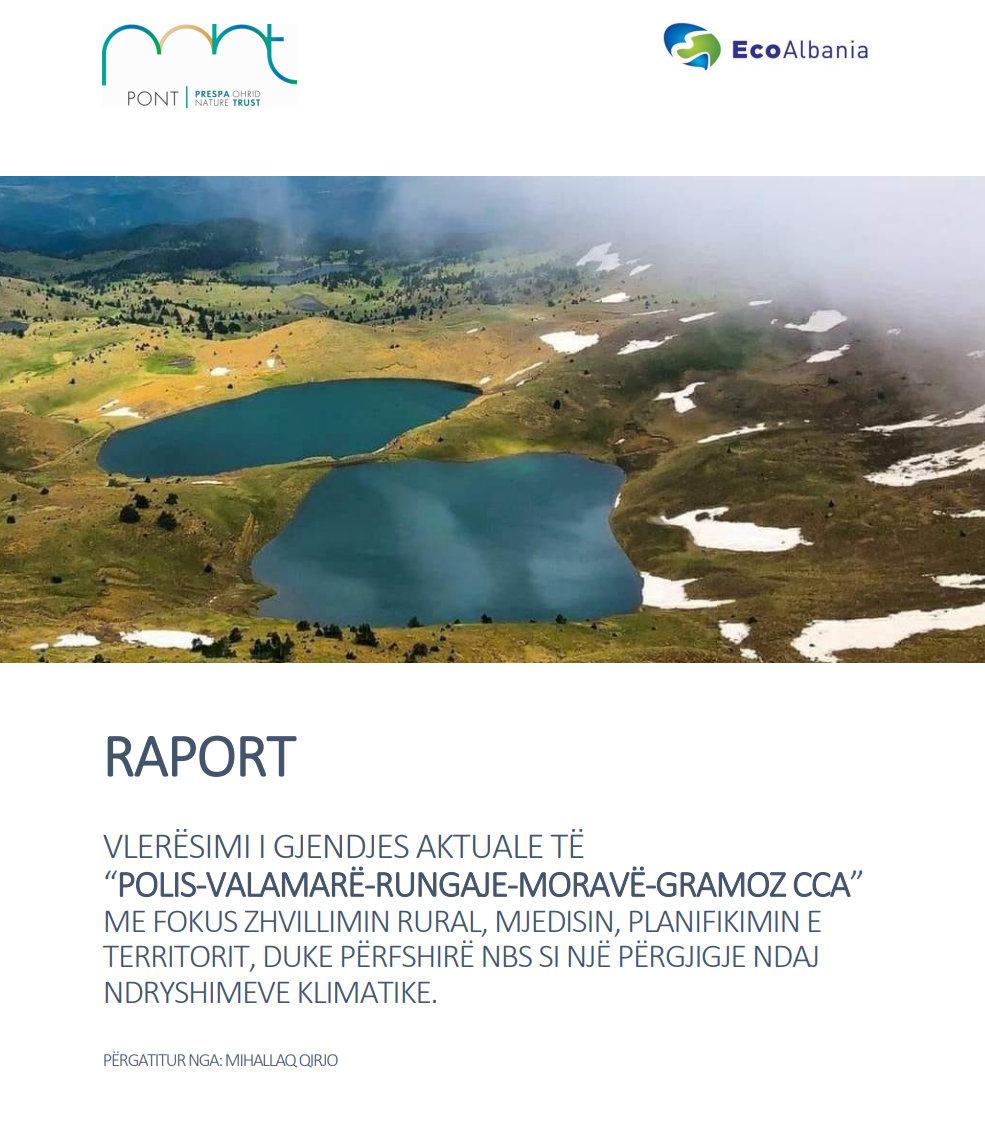Baseline Study on Sustainable Development in Polis-Valamare-Rungaje-Moravë-Gramoz Corridor
In the pursuit of sustainable development and ecological preservation, Ecoalbania has undertaken a comprehensive study for the Ecological Corridor Polis-Valamare-Rungaje-Moravë-Gramoz. This study aims to provide a detailed baseline assessment of the project site, focusing on rural development, environmental factors, and territorial planning. By analyzing the current state of the area, the report seeks to inform decision-makers about the challenges and opportunities that the region presents. The study stands as a comprehensive guide to understanding the current state of the project site within the context of rural development, environment, and territorial planning. By presenting a detailed overview of protected areas, municipal planning, and ecological values, the report equips decision-makers with valuable insights to make informed choices that align with the preservation and sustainable use of this vital ecological corridor.
To establish a clear foundation for the study, the first chapter introduces key definitions used throughout the report. This helps readers grasp the content and goals more deeply, enhancing their understanding of the study’s significance.
The second chapter offers insights into the protected areas within the study site, specifically highlighting natural values, land surface, and zoning of these protected areas. By delving into the use and management of the territory, this chapter provides a comprehensive view of the region’s ecological assets.
The third chapter focuses on the holistic planning and management of the study area, excluding the protected regions. Recognizing these regions as essential ecological corridors, the chapter takes an individualized approach, dissecting each municipality within the study area encompassing Skrapar, Maliq, Gramsh, Pogradec, Prrenjas, and Librazhd. For each municipality, various aspects are presented, including natural values, land use systems, resource management (forests, pastures, agricultural land, water, and minerals), and the analysis of general local plans. The local plans are scrutinized with a lens on development directions, major projects, and their potential impacts on biodiversity preservation and the ecological function of the territory.
The study concludes by summarizing the findings and offering recommendations. In light of climate change’s forthcoming threat to the ecological corridor, a brief analysis of Nature-Based Solutions (NBS) is presented. These recommendations offer potential interventions to counteract the impact of climate change and ensure the sustainability of the corridor’s functions.
Disclaimer:
“This report has been completed within the framework of the project “Improve Sustainability of South-Eastern CCAs in Albania – ISCCA,” implemented by EcoAlbania and financed PONT. PONT’s support for the preparation of this publication does not constitute an endorsement of the content, which reflects only the views of the authors. PONT cannot be held responsible for any use of the information contained in this report.”


